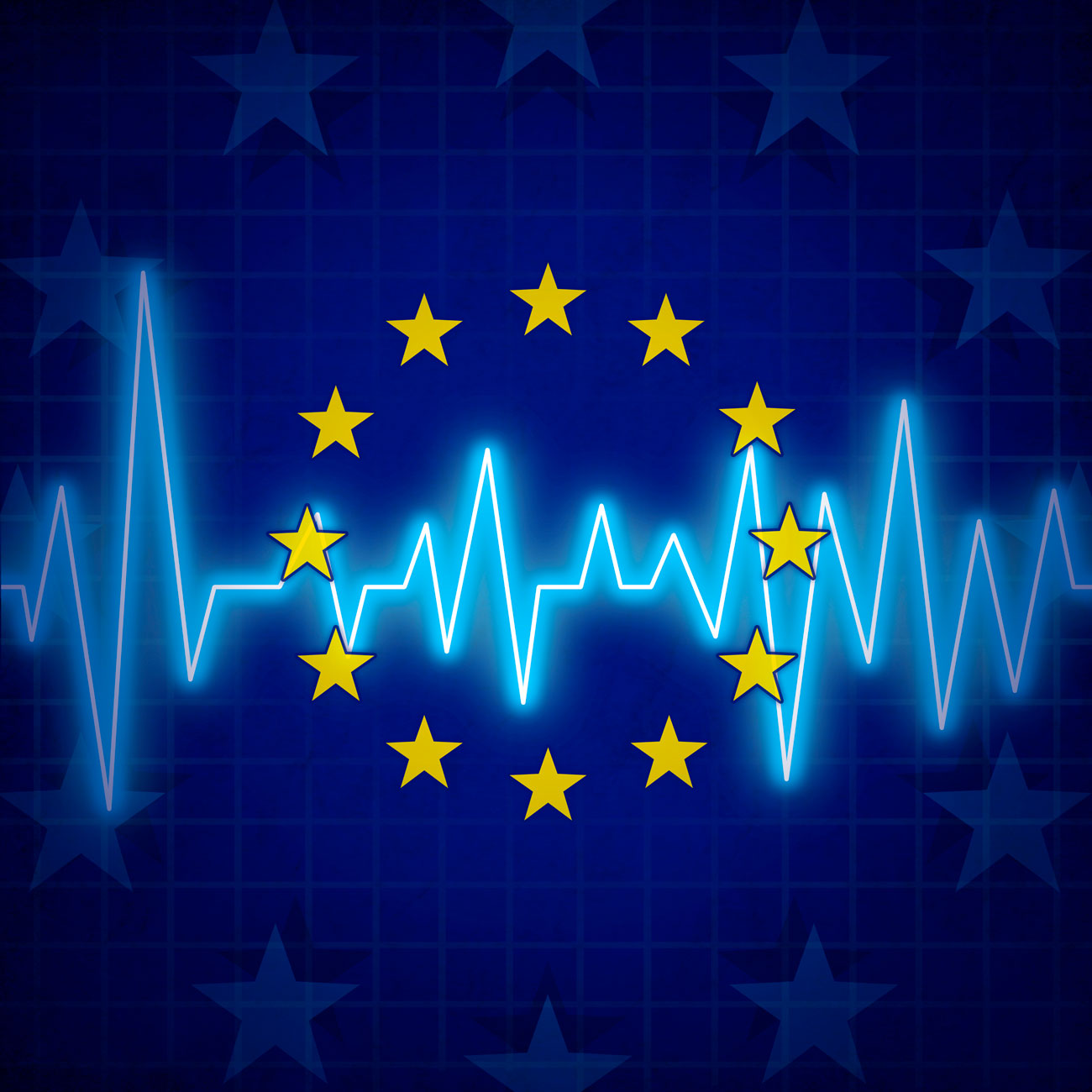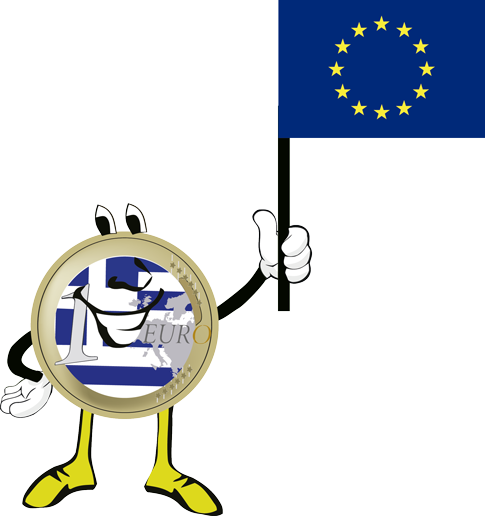ÁMBITO EUROPEO
Entre 2014 y 2020 la
Comisión estima que se
movilizaron 2.500 millones
de euros del presupuesto
comunitario para apoyar a
la economía social.
Between 2014 and 2020,
the Commission estimates
that 2.500 billion euros
from the European budget
were mobilized to support
the social economy.
La economía social como pilar de la recuperación europea
Europe looks at social economy to push for an inclusive recovery
JÚLIA MANRESA NOGUERAS
La Unión Europea está convencida que cooperativas, mutuas, fundaciones sin ánimo de lucro o las llamadas empresas sociales deben tener un papel central en la reconstrucción pospandemia. Constituyen la llamada economía social y llegan a generar hasta un 8% del Producto Interior Bruto (PIB) de la UE, dando empleo a más de 13 millones de personas a través de más de 2,8 millones de empresas y entidades.
European Union aims mutuals, non-profit foundations or socalled social enterprises to have a central role during the economic recovery after the Covid pandemic. They constitute the so-called social economy and generate up to 8% of the European Union’s Gross Domestic Product (GDP). They also mploy more than 13 million people through more than 2.8 million companies and entities.

Para hacernos una idea de la magnitud, la economía española aportó un 8,4% del PIB europeo en 2020, según Eurostat. Ahora que las autoridades europeas están volcadas en la reconstrucción de la economía pos-covid, la Comisión Europea ha impulsado un plan de acción para que la economía social encuentre un camino más fértil para crecer y juegue un así un papel clave en una recuperación más inclusiva y justa.
La oportunidad
Por economía social debemos entender todo ese tejido económico que antes que el beneficio pecuniario prioriza el bien social y medioambiental (people and planet first, en su lema en inglés). Mayoritariamente estas entidades reinvierten sus beneficios en la organización o en su propia causa social y acostumbran a organizarse de una manera participativa o más ‘democrática’ que una empresa tradicional. Algunos sectores donde típicamente encontramos estas entidades son los cuidados, servicios sociales, energías renovables, economía circular… pero también el sector cultural y creativo o la agricultura.
Con el parón económico que supuso la pandemia de coronavirus, las autoridades europeas diseñaron un plan de recuperación sin precedentes, dotado con hasta 800.000 millones de euros, que tiene como uno de sus pilares una reconstrucción más social, justa e inclusiva, que tenga las personas, el clima y la digitalización en el centro. Y es aquí donde entra el Plan de Acción de la Economía Social impulsado por la Comisión Europea.
“El Fondo de Recuperación y Resiliencia ofrece a los Estados miembro oportunidades significativas para implementar reformas e inversiones a través del emprendimiento social e inclusivo”, dice textualmente el documento del plan del ejecutivo comunitario. “Una economía que funcione para la gente” es, de hecho, el lema que aglutina estas iniciativas y el simbólico nombre de la poderosa cartera económica del vicepresidente Valdis Dombrovskis.
Sin embargo, el mismo ejecutivo con sede en Bruselas reconoce que todas las potencialidades asociadas a estos modelos de economía social están muy lejos de ser explotados al máximo. “Muchos consumidores quieren comprar de manera responsable, pero no necesariamente saben cómo hacerlo”, sostiene la Comisión, que también admite que el capital necesario para los proyectos no siempre está disponible o que las autoridades públicas no ponen a disposición las herramientas necesarias para el sector en términos de inversión, concursos públicos o proyectos. Continúa siendo un reto.
LA COMISIÓN EUROPEA LANZA UN PLAN DE ACCIÓN PARA IMPULSAR UN SECTOR QUE APORTA EL 8% DEL PIB EUROPEO
Así pues, es necesario hacer más para que la economía social encuentre las condiciones óptimas para crecer. Por ejemplo, el marco fiscal es importante. Como recuerda el texto de la Comisión, algunos países europeos han desarrollado un marco fiscal específico para este sector, con exenciones en los beneficios, reducciones del IVA, reducciones del coste de seguros o incentivos fiscales para donaciones privadas. En otros países, como Francia, se usan sistemas de certificación o distinciones para facilitar el acceso de ciertas entidades a políticas o tratamientos específicos, por ejemplo. De hecho, en 2018 el Parlamento Europeo propuso crear una etiqueta de economía social para aplicar a todas las compañías del sector, pero no se ha llegado a materializar.
Para todo ello, Bruselas prevé lanzar un estudio comparativo de las diferentes prácticas fiscales en los distintos países de la Unión, que sirva de guía o incluso de propuesta. Las autoridades comunitarias son conscientes que no existe unidad europea en la regulación o legislación de este sector y a pesar de que se intenta des de finales de los 80, por ejemplo, con las cooperativas. Sin embargo, el plan de acción presentado el año pasado tampoco va tan lejos y centra más el foco en el acceso a la inversión. Concretamente, contempla la presentación de varias guías de asesoramiento a los gobiernos, pero no implica propuestas vinculantes para unificar la legislación o las medidas de incentivos a nivel comunitario.
Acceso a la financiación
A efectos prácticos buena parte de las iniciativas europeas buscan facilitar el acceso a la financiación dentro del período 2021-2017 que abarca el presupuesto europeo. Entre 2014 y 2020 la Comisión estima que se movilizaron 2.500 millones de euros del presupuesto comunitario para apoyar a la economía social. Hasta ahora, por ejemplo, los proyectos relacionados con la economía social eran prioritarios en los fondos estructurales, incluyendo los fondos de Desarrollo Regional (FEDER) o los de Desarrollo Rural, entre muchos otros instrumentos. El objetivo es incrementarlo a través de otros programas y de la creación de nuevos instrumentos financieros que presentarán este 2022 con esquemas de crédito barato, por ejemplo, redes de microfinanciación y programas de emprendimiento social.
En un plano todavía más concreto -un punto que la organización Social Economy Europe destacó en su primera valoración del plan de la Comisión- es que la Economía Social se haya identificado entre los 14 ecosistemas de la Estrategia Industrial de la UE, es decir aquellos sectores prioritarios para incentivar su desarrollo industrial. La Comisión intenta así adoptar un enfoque más transversal que no solo use la tradicional vía de la canalización de fondos europeos, sino que impulse el sector privado también a nivel estratégico.
ALGUNOS PAÍSES EUROPEOS HAN DESARROLLADO UN MARCO FISCAL ESPECÍFICO PARA ESTE SECTOR, CON EXENCIONES EN LOS BENEFICIOS, REDUCCIONES DEL IVA, ETC.
Aunque antes de empezar la casa por el tejado, Bruselas es consciente que parte del problema es que no siempre queda claro qué es la economía social. En España el concepto está bien delimitado y es conocido, pero el mismo servicio de estudios del Parlamento Europeo señala que en otros Estados europeos está más verde. De hecho, el gobierno de Pedro Sánchez ha liderado el impulso europeo al sector en el contexto de recuperación de la pandemia con la vicepresidenta Yolanda Díaz como cara visible. A finales del 2020 el gobierno organizó la Cumbre Internacional de la Economía Social para una Recuperación Inclusiva, Sostenible y Justa, que culminó en la Declaración de Toledo. Participaron y firmaron la declaración Estados miembros como Austria, Irlanda, Alemania, Luxemburgo o Francia entre otros, y acordaron dar más visibilidad e impulso a la economía social.
Spanish economy contributed with 8.4% of EU’s GDP in 2020, according to Eurostat. Now that the European authorities are focused on rebuilding the economy after the shock of the pandemic, the European Commission has promoted an action plan so that the social economy finds a more fertile path to grow and thus plays a key role in a more inclusive and fair recovery.
The opportunity
The social economy is made up of all those entities and organization prioritize social and environmental good before economic benefit (the People and planet first philosophy). Most of them reinvest their profits in their own organization or their social cause and they normally organize themselves in a more participatory or ‘democratic’ way than traditional companies. Some sectors where we typically find these entities are healthcare, social services, renewable energies, circular economy, and also the cultural and creative sector or agriculture.
With the economic slowdown caused by the coronavirus lockdown, European authorities designed an unprecedented recovery plan of up to 800,000 million euros. Reconstruction needs to be fair and more inclusive according to Brussels aims and promises. People, climate and digitalization are the three pillars of the Recovery and Resilliance fund and that is way Social Economy has an important role to play.
«The Recovery and Resilience Fund offers member states significant opportunities to implement reforms and investments through social and inclusive entrepreneurship,» says the Commission’s Plan document verbatim. “An economy that works for the people” is in fact the motto that brings together these initiatives and the symbolic name of the powerful economic portfolio of Vice President Valdis Dombrovskis.
However, the Brussels executive itself admits that all the potentialities associated with these social economy models are far from being fully exploited. «Many consumers want to buy responsibly, but they do not necessarily know how to do it,» says the Commission, which also admits that the necessary capital for projects is not always available. Public authorities often don’t provide them with enough investment, public procurement or projects opportunities.
EUROPEAN COMMISSION LAUNCHED AN ACTION PLAN TO BOOST A SECTOR THAT ALREADY CONTRIBUTES TO 8% OF EU’S GDP
In conclusion, Brussels is aware that more action from policy makers is needed for the social economy to find the optimal conditions to grow. For example, the fiscal framework is important. As the Brussels executive recalls, some European countries have developed a specific tax framework for the sector, with exemptions on profits, VAT reductions, reductions in the cost of insurance or tax incentives for private donations. In other countries, such as France, certification systems or distinctions are used to facilitate the access of certain entities to specific policies or treatments, for example. In fact, in 2018 the European Parliament proposed to create a social economy label to apply to all companies in the sector, but it has not materialized.
Taking all this into account, under the action plan Brussels will launch a comparative study of the different tax practices in the different countries of the Union, which will serve as a guide or even a proposal. EU authorities are aware that there is no European unity in the regulation or legislation of this sector. Attempts have been made since the end of the 1980s, for example with cooperatives, but it has never become a further legislative project. However, the action plan presented last year does not go that far either and focuses more on access to investment. Specifically, it contemplates the presentation of various guides, of advice to governments, but does not imply binding proposals to unify legislation or implement measures at the community level.
Access to finance
On a more practical level, Brussels is also looking for ways to boost financing and increase economic resources for this sector within the 2021-2017 period covered by the EU budget. Between 2014 and 2020, the Commission estimates that 2,5 billion euros were mobilized from the European budget to support the social economy. Until now, for example, projects related to the social economy were a priority in the structural funds, including the Regional Development Funds (ERDF) or the Rural Development Funds, among many other instruments. The objective is to increase it through other programs and the creation of new financial instruments that will be presented in 2022 with cheap credit schemes, for example, micro-financing networks and social entrepreneurship programs.
For example, as the Social Economy Europe organization highlighted in its first assessment of the commission’s plan, Social Economy has been identified among the 14 ecosystems of the EU’s Industrial Strategy. So Brussels has highlighted it as one of those priority sectors to encourage their industrial development. The Commission is thus trying to adopt a more transversal approach that not only uses the traditional route of channeling European funds, but also promotes the private sector at a strategic level.
SOME MEMBER STATES IMPLEMENTED A SPECIFIC FISCAL FRAMEWORK THAT PROVIDES THIS SECTOR WITH TAX REDUCTIONS, VAT REDUCTIONS OR OTHER EXEMPTIONS
At the same time, Brussels is aware that part of the problem is that it is not always clear what Social Economy is and therefore it needs to be well defined across Europe. In Spain, the concept is well-known and commonly understood, but the same Research Service of the European Parliament points out that in other European states it is still far from being mature. In fact, the government of Pedro Sánchez has led the European push for the sector in the context of the pandemic recovery, with Vice President Yolanda Díaz as the visible face. At the end of 2020, the government organized the International Social Economy Summit for an Inclusive, Sustainable and Fair Recovery that culminated in the Toledo Declaration. Member states such as Austria, Ireland, Germany, Luxembourg or France, among others, participated and signed the declaration, and agreed to give more visibility and boost to the social economy.

The European Commission promoted an action plan for the social economy to find a more fertile path to grow.
La economía social al centro de la recuperación
Social economy at the center of economic recovery


La voz española de la economía social en Bruselas
The Spanish voice of Social Economy in Brussels
La necesidad de incentivos fiscales e inversión
The need for fiscal incentives and investment
EUROPA OPINA
EUROPE THINKS
Posicionamiento del Comité Económico y Social Europeo sobre el rol de la
Economía Social en la creación de empleo y la implementación del Pilar Social Europeo.
European Economic and Social Committe assessment about the role of social economy in the creation of jobs and in the implementation of the European Pillar of Social Rights.
Acogida y análisis del plan de acción para la Economía Social de la Unión Europea del Fondo Europeo de Desarrollo Regional.
European Regional and Development Fund analysis of the Social Economy Action Plan after being first published by the European Commission.
Contribución de la Patronal Business Europe y de la patronal de las pequeñas y
medianas empresas, SME United.
Contribution after the hearing on Social Economy Action Plan by the European Commission. It also takes into account the Small and Medium Enterprises European Trade organisation opinion.



